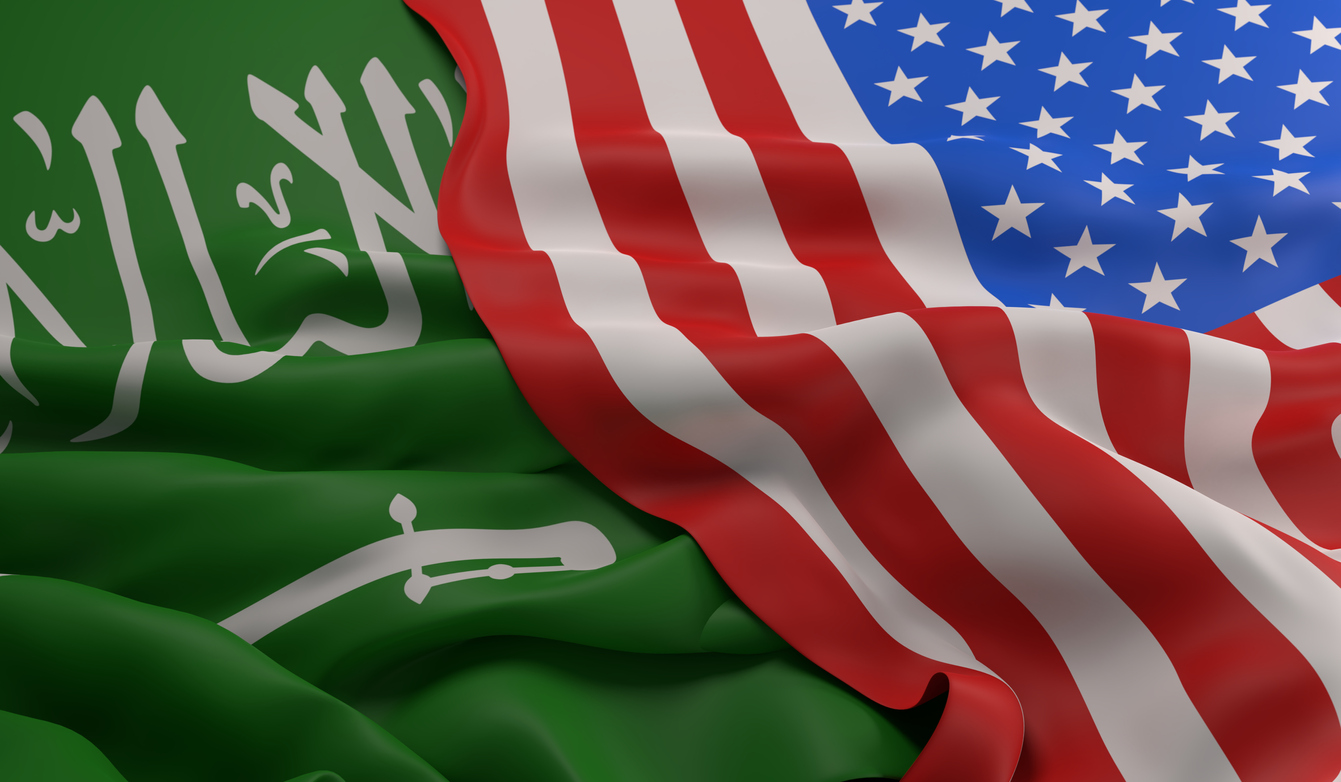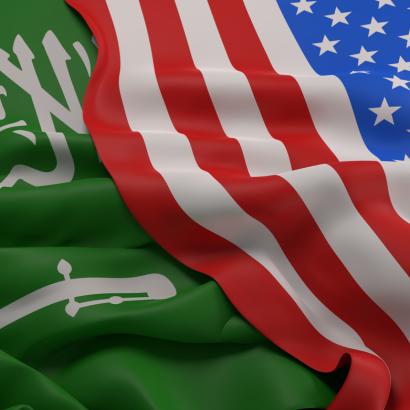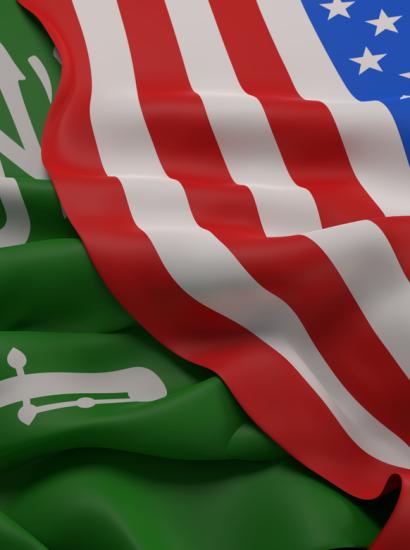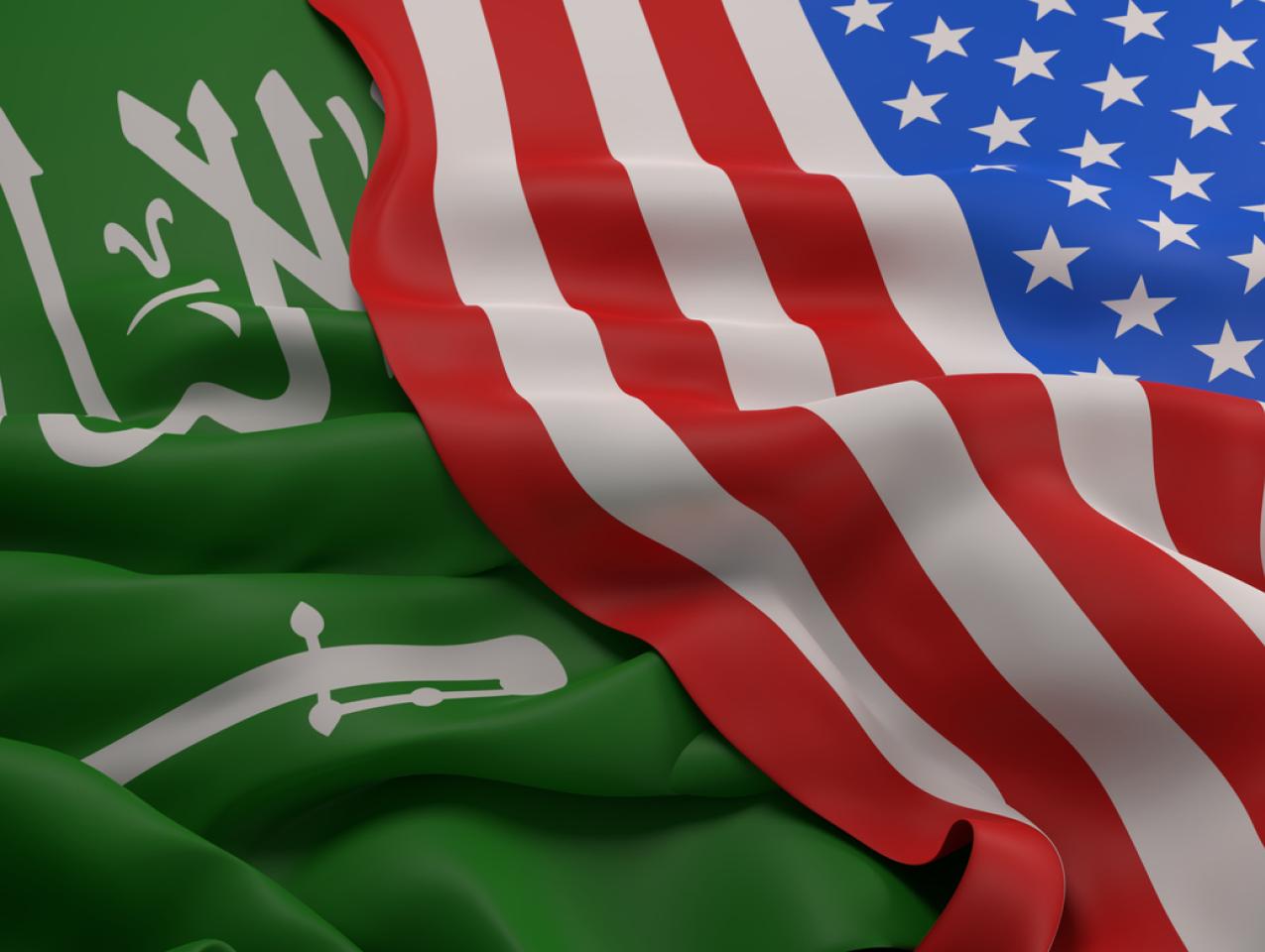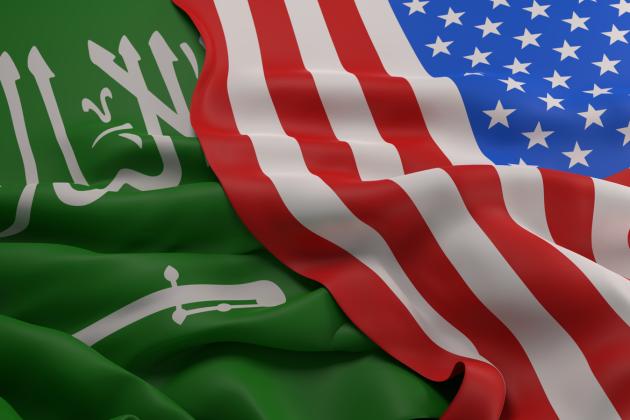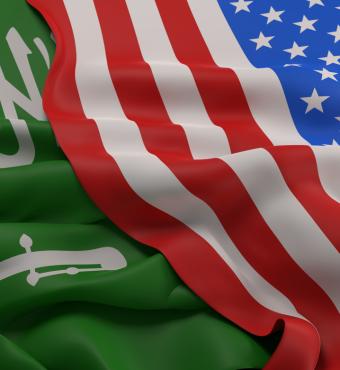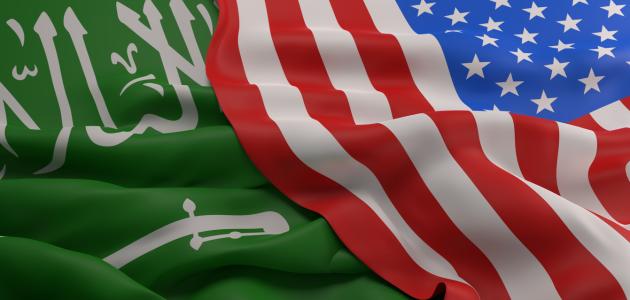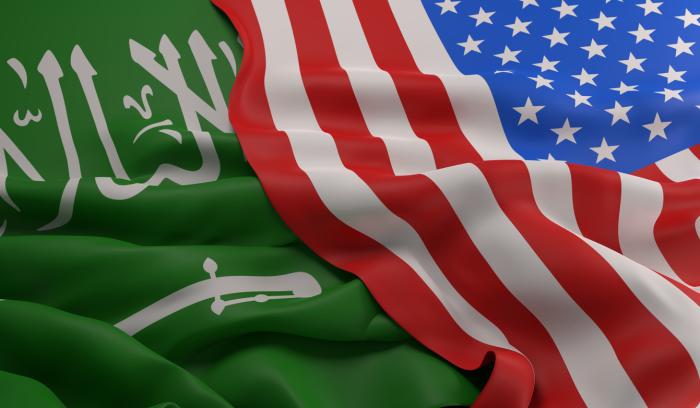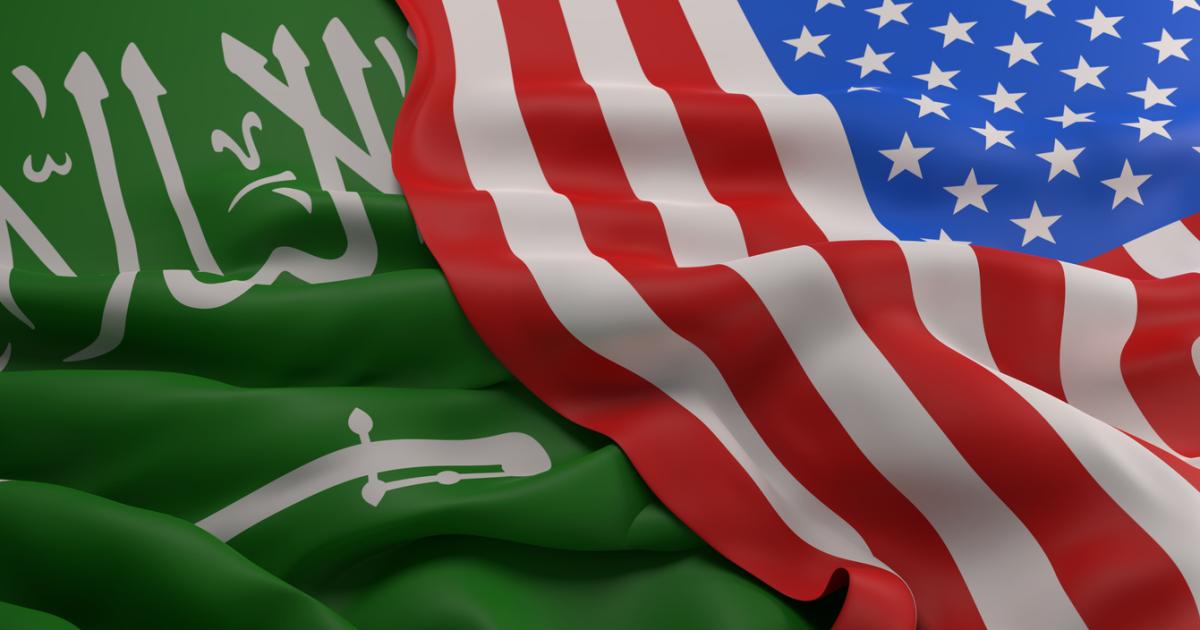- Middle East
- Determining America's Role in the World
As he had done in his previous term, Donald Trump made the first foreign visit of his second term to Saudi Arabia. He had sound reasons for doing so. Saudi Arabia remains an important and stable leader in an important, but very unstable part of the world. Whether you want to secure moderate oil prices, maintain peace in the Middle East, resolve the Arab Israeli conflict or confront terrorism, it helps to talk to the Saudis. Saudi Arabia is also changing in ways that the United States has long encouraged and now seeks to support.
Unfortunately, Saudi American relations had deteriorated under the Biden administration while Russia and China had become increasingly important players in Riyadh. Russia is now Saudi Arabia’s most important partner in the OPEC+ oil cartel. China is now the Saudis largest trading partner and most important oil customer. The United States has been losing influence in Riyadh, and Trump needed to reset the relationship.To a considerable extent, he succeeded.
Despite plans for transition away from hydrocarbons, oil and gas remain the dominant fuels on our planet. No price affects the American economy more than the price of oil and that price is determined in a global market. Far from declining, global oil demand continues to rise by about 1 percent a year. While the United States imports very little Saudi oil, key allies such as Japan, Taiwan and South Korea remain heavily dependent on Saudi supplies.
Saudi Arabia is the world’s largest oil exporter. It possesses large reserves that are both inexpensive to produce and easy to transport. At current production rates, its reserves will last at least another 50 years. More importantly, Saudi Arabia is the only country in the world that can quickly bring large volumes of oil into the market. It is this surge capacity, not its total reserves or current production rates, that make Saudi Arabia the central bank of oil.
The Saudis certainly want to maximize their oil revenues, but they have learned from bitter experience that excessively high or excessively volatile oil prices will destroy demand. Unlike many producers with limited reserves, the Saudis are long term players. They are more interested in keeping oil part of the global energy mix than maximizing short-term profits. It is in their self-interest to support global economic growth and not create a global recession as they did with the 1973 oil embargo. Thus, the Saudis increase oil production as often as they reduce it. They have often helped calm markets when supplies were interrupted by war, weather, labor unrest or U.S. imposed economic sanctions. It is very much in America’s interest that Saudi Aramco, the world’s largest oil company, remains well managed, responsive to global energy needs and based in a politically stable country.
Like the United States, Saudi Arabia has a lot to lose from political unrest in the Middle East. On numerous occasions Saudi financial aid and political intervention have supported stability in places like Lebanon, Syria, Jordan and Egypt. Saudi kings Fahd, Abdullah and Salman all sought a settlement of the Arab Israeli conflict and consistently encouraged other Arab states in that direction. While Saudi Arabia is not a militarily powerful nation, its geographic location and purchasing power make it important to the U.S. military. Many times large Saudi arms purchases have reduced the unit cost paid by the American military and helped keep American defense industry production lines open. All of these issues were on the table during President Trump’s visit.
Finally, talking with the Saudis is important because a quarter of the human race turns to Mecca in prayer five times a day. Millions more travel there every year for the Hajj. What is preached from the pulpit in Mecca shapes public opinion across the Muslim world. As Custodian of the Two Holy Mosques, the King of Saudi Arabia has the prestige, as well as the financial resources, to influence political outcomes in dozens of Muslim countries. Saudi-based multilateral bodies such as the Organization of Islamic Cooperation, the Islamic Development Bank and the Muslim World League all amplify Saudi influence in the Muslim World. Today the Saudis are actively promoting a moderate version of Islam as well as tolerant social practices which can serve as a model for other Muslim nations. The president sought to recognize and support those policies.
For many years oil prices and counterterrorism were often the focus of presidential visits to Riyadh, but not this time. In May of 2025, oil prices had come down from $100 a barrel in 2022 to only $65 a barrel and OPEC was, in fact, gradually increasing production. With Saudi support, the War on Terror had largely been won. The Saudis had defeated a local Al Qaeda insurrection, tightened controls on their charities, removed or retrained hundreds of mosque preachers, jailed the most radical imams and revised their school textbooks. Neither Al Qaeda nor ISIS posed a significant threat to either Saudi Arabia or the United States.
Instead, as might be expected, President Trump sought to strengthen Saudi American ties through trade and investments. Not since 1973 when Secretary of State Henry Kissinger sought to tie the Saudi economy to American prosperity had there been such an intense effort to recycle petrol dollars back to the United States. Only this time most of those recycled dollars did not come directly from the United States, which actually runs a trade surplus with Saudi Arabia. They came from Aramco’s other customers, including China.
The President’s economic focus aligned with Saudi Arabia’s Vision 2030, a development plan designed to diversify the economy away from oil, balance the government budget and create jobs for young Saudis. For the plan to succeed Saudi Arabia needs regional stability and foreign investment. It was no coincidence that Trump’s visit coincided with the U.S. Saudi Investment Forum. Numerous American executives traveled with the president and signed significant contracts for military equipment, commercial aircraft, and electric generators. These are three key sectors of the Saudi economy which the United States has dominated and will now continue to do with Raytheon missiles, Boeing aircraft and GE turbines. In addition to their size, reportedly 600 billion dollars, what made these transactions interesting was the level of commitment made by American firms to help Saudi Arabia develop its own defense and manufacturing capacity.
The most significant new area of cooperation is artificial intelligence which is fast becoming the third leg of a relationship traditionally based on oil prices and counter terrorism. Because of its low electricity costs, Saudi Arabia has a competitive advantage in hosting power-hungry data centers. The kingdom welcomed technology executives from: Google, Amazon, Starlink, Salesforce, Nvidia and Oracle who accompanied the president. Agreements were reached to help the Saudi AI champion Humain build data centers and research facilities. Most significantly the Saudis were granted access to high end AMD chips.
Crown Prince Mohammad bin Salman (MBS) wanted public recognition of the profound social changes he has brought to Saudi Arabia. On the streets of Riyadh, the once feared religious police have been defanged. Stores no longer rigorously enforce prayer time closure. School curriculums now contain less religion and more foreign languages. Valentine’s Day and Christmas celebrations that were once illegal are now tolerated as are private non-Muslim religious services. There is even a chief rabbi of Saudi Arabia quietly serving Jewish expatriates.
MBS understands that Saudis under 30 do not want to live in their grandparents theocratic, puritanical Saudi Arabia. They want entertainment and more social freedom. He is giving it to them. There are now festivals, concerts and movie theaters to go to. Riyadh has its first gay bar, though still without alcohol. People are having fun. Saudi nationalism is on the rise while Islamic fundamentalism is declining.
By far the most striking changes relate to the role of women. The guardianship regulations, which once required a woman to seek permission from her father or husband to travel, open a bank account, go to university, get married, or even have a cesarean delivery have largely been abolished. In a place where women could once not go to school they now comprise the majority of university students. In a place where women were legally barred from most jobs there is now an aggressive affirmative action program to bring them into the workforce. Saudi women can now drive, dress as they please and sit where they like in restaurants.
Many of these changes faced strong opposition in an inherently religious and conservative society. MBS has firmly controlled the pace of change. He has jailed those who complained that things were moving either too fast or too slowly. While his government has become more autocratic, MBS did not want to hear another lecture on human rights. President Trump obliged. The president praised the social changes MBS has made while stating clearly that the United States is no longer in the business of telling other nations how to manage their internal affairs.
As mentioned previously, regional stability is a prerequisite for the success of Vision 2030. Towards that end the Saudis expressed their concern over events in Syria, Palestine and Iran. The Saudis want to give Syria’s new government a chance to stabilize the country and avoid potentially exportable chaos. President Trump obliged by meeting Syria’s new leader Ahmed al-Sharaa. He lifted American sanctions on Syria thereby allowing Saudi Arabia to provide al-Sharaa with economic support. MBS’s foremost concern regarding Iran was to avoid being drawn into any military conflict. In this he succeeded.
Neither leader got everything he wanted. President Trump’s call to expand the Abraham Accords fell largely on deaf ears. The Saudis view the Palestinian issue as a security problem not a morality play. They want it resolved because it is destabilizing. Any solution that does not address underlying Palestinian grievances will not solve the problem and MBS made that clear again during the President’s visit. MBS did not get a formal American security guarantee, though how much he really sought one is an open question. Nor did he get an agreement on providing American nuclear power technology where issues of enrichment and inspection remain unresolved.
Nevertheless, the Strategic Economic Partnership Agreement, contracts, letters of intent, memoranda of understanding and executive agreements signed during the visit reasserted Washington’s leading role in Riyadh, a role underlined by the ongoing construction of a massive new American embassy complex there. At the same time MBS received recognition as the leader of a nation that is open for business, changing in positive ways and an anchor of American influence in the Middle East.







